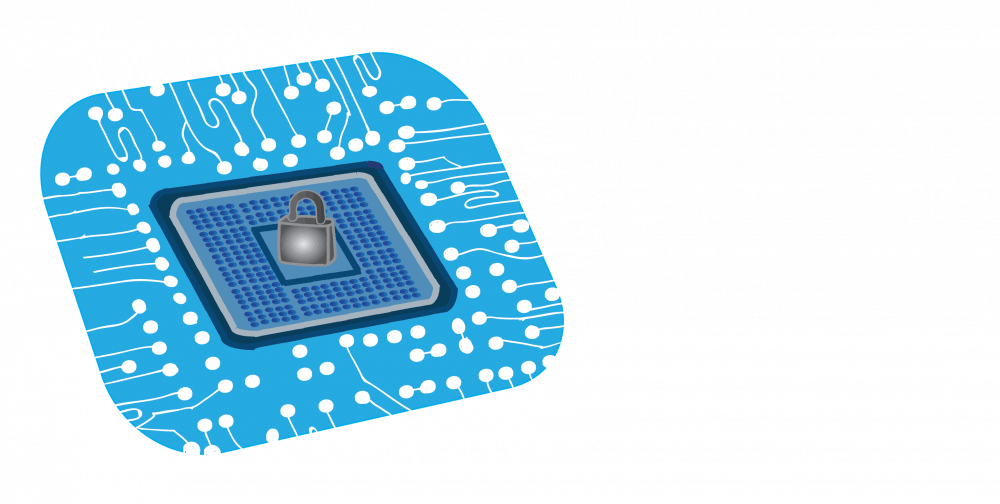The Center for Hardware and Embedded Systems Security and Trust — started with the help of the University — is a new initiative that researches ways to ensure that technological devices and connected systems in these devices protect the customers and communities that rely on them. Embedded, or connected, systems are frequently used today to control devices. The center focuses on addressing ways to promote and secure trust in devices that could be found vulnerable due to complications with these embedded systems. This center was recognized by the National Science Foundation Oct. 1 and was awarded a five-year grant of $9 million dollars. The University will be one of the six schools taking part in this project.
These systems — including their mechanical and electrical components such as smaller computers or microprocessors — are embedded within devices to work on specific processes. Some commercial examples include watches, ATMs or even a washing machine. Researching potential security vulnerabilities of theses devices and their effects has become increasingly important since vast amounts of data and personal information is processed within these interconnected devices.
These systems could be vulnerable to hacking and potential breakdowns that could cause a fully connected web of devices to crash. However, with enhanced security systems, customers will be able to fully trust their technological devices.
Zach Collier — an adjunct professor of computer information systems and business analytics at James Madison University who earned his doctorate from the University — organized this initiative following his suggestion to a professor at the University of Connecticut. Collier started a consulting firm in Green County and therefore designed this project to fit his needs as the ideal customer for the goals of the center. Six universities are involved in this designated NSF Industry-University Cooperative Research Center. The universities are all world-prominent in secure trusted electronics and include the University of Virginia, University of Connecticut, University of Texas at Dallas, University of Cincinnati, Northeastern University and University of California, Davis.
“CHEST brings together the six universities to do research for industries involved in the electronics and chip manufacturing and then make sure that these components are reliable and secure, and that we can have trust in them as well as the systems that they that they enable,” Collier said.
James Lambert, professor of engineering systems and environment, led the University’s effort in creating this new center. In addition to the University having a tie to the student who began the organization of the initiative, the center is also connected to the link lab in the Engineering School which specializes in cyber-physical systems, also known as embedded systems.
“The other universities are more focused on the electrical engineering and designing the chips, and therefore the connections and software that ride on those chips,” Lambert said. “U.Va. has a unique role to find the test beds for systems integration.”
According to the research roadmap from the CHEST webpage, the University will focus on the systems and application level of the center. This means working with industry members to determine how the center’s yearly research projects can be used to specifically improve the trust involved in the devices each different industry uses. Lambert explained that they might work with the Port of Virginia, an automated port that deals with massive imports and exports, to determine and address the technological breakdown that separates a productive day from a slow day.
Collier explained that the University is supporting the center by taking an engineering approach and viewing the bigger picture — security of embedded devices. This offers a unique perspective to the center and allows the center to view the effects on end user items of this research.
This center is unique in its shared rights to property, meaning all of the universities and the industry members will have shared use of all of the developments of software, products or intellectual property patents. Industry members must have paid their memberships to maintain this right and their position in the center. These memberships, however, do pose a challenge that Lambert hopes will promote the involvement of University alumni.
“Our big challenge is to sustain the industry paying the memberships, so we’re very excited for U.Va. alumni who have their own companies or have rose up inside companies to pay either $25,000 or $50,000 a year to participate in this research project,” Lambert said.
Outside of the individual universities, the research found in this initiative will have widespread effects worldwide. Addressing a question of trust, this center can help look into ways to see how the embedded systems are bought and sold based on trust. This can be useful to individual industry partners such as Collier’s consulting company up to the government industry partners such as the Air Force, Army Corps of Engineers and the Port of Virginia.
“Our research is to figure out what it means to add trust in the device, up to trust in all the embedded devices and ultimately the enterprise,” Lambert said.
The center will have meetings at the six different universities on a rotating basis to propose ideas of projects for the following year. Industry members will then have the opportunity to select the projects to focus on. The kickoff meeting will be held Dec. 16 and 17 at the University of Cincinnati and will begin the research and projects that will improve the way embedded devices are secured and trusted worldwide.







